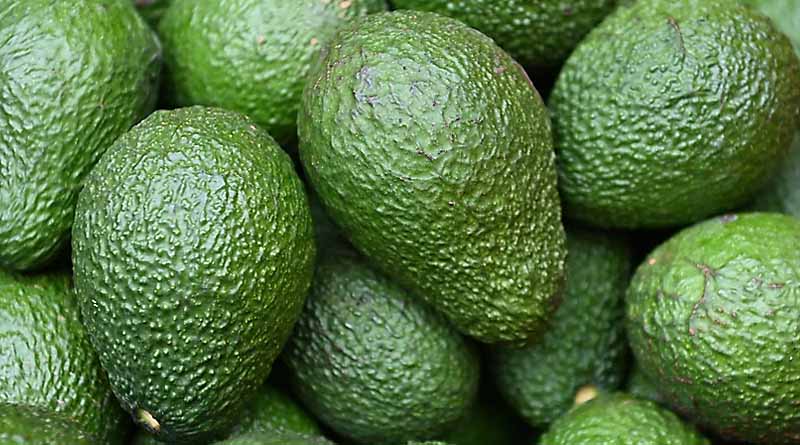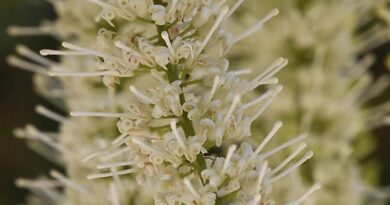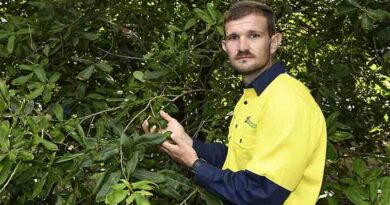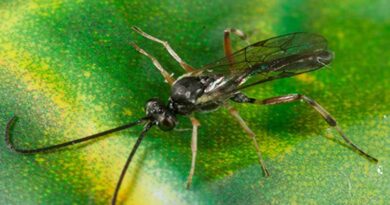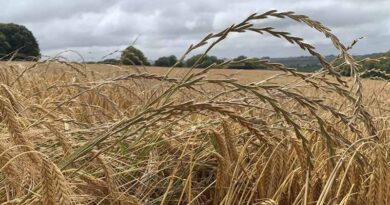Regular insect monitoring reduces chemical application in Avocados
12 May 2023, AU: The regular monitoring of insect pests and the number of beneficial insects is helping to reduce the amount of insecticide applications needed in avocado orchards in the Bundaberg region of Queensland.
Agronomist Jonathan McDonald, Agronica, Bundaberg, said they utilised drop sheets in avocado orchards to identify insect populations.
“This gives us a real time view of what’s in the orchard to make sure we are using the right products, whilst keeping a close eye on the pest to beneficial ratio.”
He said they were trying to preserve any insects in the orchard that were not having a detrimental effect on the crop.
“We’re doing this because there should be an associated value on those beneficials. There should be a dollar value which is helping growers spray less.”
The period post flowering is key to examining the pest dynamic in the orchard with fruit-spotting bug a major concern.
“They cause a lot of marketability issues in avocados with blemishes on the outside of fruit and internally as well,” Mr. McDonald said.
“When it comes to beneficials, we’ve got a raft that do come in. Green lacewing, Cryptolaemus and a lot of micro-hymenoptera come into the orchards and manage some of our pests.
Other insects, such as cockroaches, can act as a food source for some of our large predator insects. Assassin bugs are another key one. We certainly feel that some of the Jumping Spider species will also control fruit spotting bug.”
To keep the beneficial insects in the orchard, Mr. McDonald is recommending softer chemistry options such as Transform® Isoclast® active from Corteva Agriscience.
“We categorise our insects that we collect into a beneficial predator, other and a pest and we keep an eye on those ratios. We’ve used Transform through that process and then compared it to synthetic pyrethroids,” he said.
“There are low effects on some of our beneficial species from using Transform compared to a pyrethroid.”
He said by using Transform early in the season they were able to preserve beneficial insects in the crop so they can continue to work through the year.
Transform is registered to control fruit-spotting bug and banana-spotting bug in avocados, but its ability to leave key beneficial insects in the crop after application means these can go to work and control a wide range of other pests.
Regular monitoring means decisions on insecticide applications are made as the need arises, instead of at certain times of the crop development.
“If we don’t need to spray, we will recommend not to spray which really helps the grower’s pocket,” Mr. McDonald said.
Childers avocado grower, Kevin Philip, utilises the Agronica services and has used IPM techniques since originally growing tomatoes before swapping into avocados.
“We’ve been practicing IPM since before IPM was a thing,” Mr. Philip said. “Our method is just softly softly, as light as we can possibly go. We use Transform early in the piece and then look at the broad-spectrum stuff later.”
While Transform produces good results on the labelled pests, its ability to preserve beneficial insects in the orchard made it a key option.
Tomato red spider mites can cause significant damage to leaves, fruit size and quality and tend to flare if hard chemistry knocks out beneficial insects.
“Ninety per cent of the reason for the soft approach is mite control,” Mr Philip said. “We also haven’t had to spray for loopers.”
He said last season they used softer chemistry options through until December and January and had excellent results.
Also Read: Godrej Agrovet launches umbrella brand PYNA for sustainable cotton production
(For Latest Agriculture News & Updates, follow Krishak Jagat on Google News)

